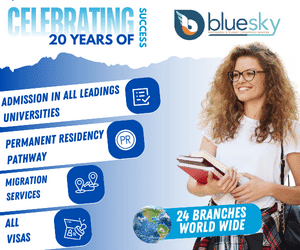Most recently, Open AI introduced chat GPT, a form of generative AI – an LLM – that generates texts and images based on user queries and requests.
The days following the launch of Open AI’s Chat GPT were fraught with uncertainty as pundits, tech experts, and even novices deliberated on the implications of Chat GPT and similar AI programs for employment.
The capabilities of Chat GPT and similar programs not only underscored the extraordinary advancements in technology but also ushered in new career pathways previously unseen.
The 2016 Future of Jobs report by the World Economic Forum posited that 65% of children entering primary school would be employed in roles that did not exist at that time. In 2023, Universities UK released a report that indicated a growing demand for AI skills and training in the UK. According to the report, in the next 20 years, the UK will witness a 10 % net increase in jobs that require a degree due to AI.
The report also showed that in future, there will be a greater demand for graduates of STEM and computing courses. These trends necessitate a change in learning if the demand is to be met and if the graduates churned by colleges and universities will be well equipped for this future of work.
According to McKinsey and Company, the future of work entails understanding how businesses and organisations can adapt to rapid technological changes. Employability, conversely, denotes how well-suited a graduate is to market needs and their ability to capitalise on available job opportunities. Current trends indicate that many future jobs do not exist today. In light of these developments, concerns about the future employability of graduates loom large.
The term future of work can deceptively make one assume that the changes spoken about will happen sometime in the far future and thus avoid the question of the employability of graduates. Nevertheless, there is no better time to address this question than today – because the changes are already here.
Those who have a positive mindset to change immediately started looking for ways to incorporate Chat GPT into their jobs
Traditionally, educational institutions have been tasked with preparing the workforce, endowing them with skills aligned with market demands. Unfortunately, technology evolves at a pace that is faster than the capacity of learning institutions to adapt.
As a result, most schools have been left to play catch-up, every time new technology appears on the scene. Even more concerning is that most educational institutions have maintained the same teaching styles used a decade ago to teach even some subjects that have little to no impact on their graduates’ employability. A 2018 report by the World Economic Forum lamented that even schools attempting curriculum reforms primarily focus on utilising technology rather than creating it. Learning then is reduced to helping students use a specific technology as opposed to teaching them how to make such technology.
The aftermath is that such skills are only useful for as long as that technology is relevant. Once such a technology becomes outdated, so are their skills. Consequently, graduates perpetually find themselves playing catch-up whenever new technology emerges.
While the future of work remains uncertain, it is evident that fields such as computer science, machine learning, and the Internet of things will shape the job market in the coming years. Therefore, integrating more computer science subjects into core curricula is imperative.
This will furnish students with fundamental knowledge to navigate emerging technologies. Equipping students with such knowledge would override the need for a reactive kind of learning saving resources and time. Nevertheless, even as schools introduce computer learning as a mandatory subject, graduates must realize that change is the only constant in life. They must embrace a flexible mindset and adopt life-long learning.
This calls for individuals to continuously improve their skills and stay updated on current technological developments. For instance, when Open AI launched Chat GPT, there was a lot of chatter mainly focused on the impact of the program especially on writers. However, those who have a positive mindset to change immediately started looking for ways to incorporate the program into their jobs. In the end, they have emerged as the biggest winners.
Such skills are only useful for as long as that technology is relevant. Once such a technology becomes outdated, so are their skills
Schools must also embrace industry partnerships and experiential learning. For example, internships have remained a good way of orienting prospective graduates into the work environment. During internships, students interact with real-life systems and technologies outside of the classroom environment. Too few students have such opportunities, so after graduating, they start at a lesser level than interns.
Therefore, schools must partner with industries in the courses they offer to ensure that students get these internships.
Beyond technological changes, there is a growing demand for skills such as creative thinking, problem-solving, and collaboration. In fact, a 2020 report by the World Economic Forum showed that by 2025, most graduates will need to reskill to match the ever-changing work environment. However, a significant portion of educational institutions have yet to incorporate these skills into their curricula.
These institutions continue to produce graduates with low employability due to a lack of market-relevant skills. The challenge then goes to educational institutions to stay updated on marketplace reports and again revamp their curricula to offer the in-demand skills for the future. Employers can also have programs that train their employees to acquire these skills for effectiveness in their duties.
In the words of Franklin D. Roosevelt, “We cannot always build the future for our youth, but we can build our youth for the future.”
While the specifics of the future of work remain uncertain, addressing systemic disparities in education and opportunities and reforming educational systems to include IT related courses and equip students with essential skills are critical steps towards preparing the workforce for an increasingly technology-driven future.
Individuals must also stay updated and learn new skills to stay desirable in the employment market. Future work employability is a societal issue that demands a team effort.











